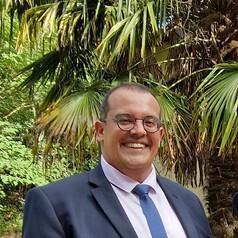
Nicolas Cabaton
Chercheur en Toxicologie, Inrae
Après une thèse en sciences des aliments, option toxicologie de l’Université de Bourgogne, j’ai passé trois ans à l’Université Tufts à Boston (USA) pour étudier les effets néfastes du bisphénol A après une exposition périnatale à (très) faibles doses sur les paramètres de fertilité, développement et fonctionnement de la glande mammaire. De retour en France, j’ai fait un second post-doc dans l’unité Inra «Xénobiotiques» puis «Toxalim» pour mettre en place des approches globales de métabolomique pour l’étude des effets à faibles concentrations de perturbateurs endocriniens sur le métabolisme. J’ai ensuite été recruté en 2011 dans cette unité Inrae pour m’intéresser au rôle de la bioactivation métabolique dans les mécanismes d’action toxique des contaminants alimentaires et environnementaux de type perturbateur endocrinien.
Less ![]()
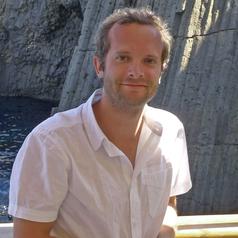
Nicolas Charles
Géologue, PhD, BRGM
Docteur en géologie, Nicolas Charles est géologue au BRGM, le Service géologique national. Il participe à de nombreux projets à l'international et en France sur la cartographie géologique et les ressources minérales. Depuis 2016, il coordonne un projet européen de formation en géosciences en Afrique (PanAfGeo) visant à renforcer les partenariats entre services géologiques européens et africains. Auteur de nombreux ouvrages de médiation scientifique sur le patrimoine géologique français, il anime aussi des conférences sur la géologie et les ressources minérales.
Less ![]()


Nicolas Le Dévédec
Sociologue et politologue, spécialiste des enjeux sociaux, politiques et écologiques soulevés par le transhumanisme, HEC Montréal
Less ![]()
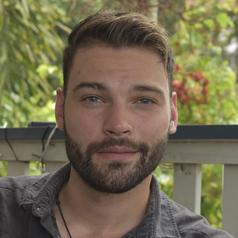
Nicolas Benjamin Lubitz
Researcher in marine ecology, James Cook University
I am a marine biologist with Biopixel Oceans Foundation and James Cook University from which I recently received my Doctorate degree. For over 8 years I have worked on marine ecology projects, specifically regarding the migration patterns of marine megafauna species such as sharks. In this time I have lead over 100 research expeditions and tagged over 1000 sharks of multiple species to track their movements. From this data, many scientific publications arose. Overall, my passion is addressing pressing research questions regarding how marine animals use their habitats in the face of global change, such as climate change.
Less ![]()

Nicole Adams
Clinical Associate Professor of Nursing, Purdue University
I have over 15 years at the bedside and in hospital leadership positions as an RN in the Southwest and Midwest United States. I am a Robert Wood Johnson Foundation Nursing and Health Policy Fellow and completed my PhD in the RWJF nursing and health policy collaborative at the University of New Mexico. My current research focuses on how community coalitions address substance use and the meaningful use of technology in healthcare. The latter includes the development of software solutions and Narcan delivery drones.
Less ![]()

Nicole Badstuber
Nicole's research focuses on transport policy and governance for city regionas. Nicole is currently a researcher at LSE Cities' New Urban Governance project as well as a doctoral student at the Centre for Transport at UCL. Nicole is also currently supporting the Horizon 2020 funded project CREATE looking at the evolution of transport policy in cities in Europe.
Less ![]()

Nicole Basaraba
Assistant Professor in Digital Humanities, Trinity College Dublin
Nicole Basaraba received her PhD from Trinity College Dublin, Ireland with a specialisation in digital media narratives and digital humanities. Her research focuses on evaluating and finding best practices for creating interactive digital narratives in non-fiction genres. She is particularly interested in how participatory digital culture impacts storytelling practices in cultural heritage and tourism contexts, such as in creative and digital place-making. Basaraba also has a Master of Arts in Communications and Technology from the University of Alberta, Canada. She has presented at over 20 conferences worldwide and her work has been published in multiple peer-reviewed journals.
Less ![]()
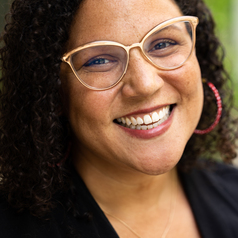
Nicole Bernhardt
Assistant Professor, Political Science, University of Toronto
Nicole Bernhardt is an Assistant Professor in Political Science at University of Toronto Scarborough. Her research focuses on human rights policy as a response to structural racism in policing. She has worked as a policy advisor for the Anti-Racism Directorate and an investigator with the Ontario Human Rights Commission. She received her PhD in politics from York University and was awarded the Abella Scholarship for Studies in Equity. Nicole teaches courses on Canadian government and public policy, and currently serves on the executive for the Black Canadian Studies Association.
Less ![]()

Nicole Bridges
Senior Lecturer in Public Relations and Director of Academic Program - Communication, Creative Industries, Screen Media, Western Sydney University
Less ![]()
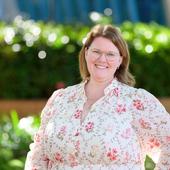
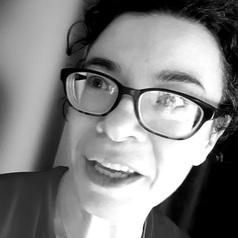
Nicole Cook
Lecturer, School of Geography and Sustainable Communities, University of Wollongong
Dr Nicole Cook is an urban geographer with research interests in urban restructuring, urban governance, power and participation, social movement and resident activism, housing and home. She specialises in theoretically-driven urban case studies and qualitative research methods.
Less ![]()
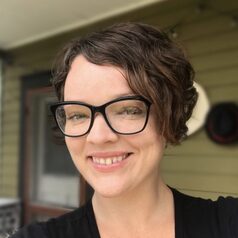
Nicole Eggers
Assistant Professor of History, University of Tennessee
Nicole Eggers’ research interests include 20th-21st Century Congolese history, health and healing, refugees, and religion and politics in Central Africa. Her first book, Unruly Ideas: A History of Kitawala in Congo (Ohio University Press, 2023) follows the history of the influential religious movement Kitawala from its colonial beginnings in the 1920s to its present-day influence in some of the most conflicted parts of Eastern Congo. The study highlights practitioners of Kitawala as intellectuals and innovators and considers broad theoretical questions about how they have historically drawn on and reformulated practices of spiritual and social healing in times of upheaval, creating a historically situated framework for understanding how they and their communities have experienced and understood power and violence. In the process, the book engages a number of fields of inquiry: health and healing, violence and power, religion and rebellion, intersections of gender and power, colonial incarceration, prayer and spiritual agency, and nationalism and the post-colonial imagination.
Eggers’ second book, tentatively titled Refuge in the Spirit: Religion in the Lives of Congolese Refugees, is a collaborative project centered around oral histories of Congolese refugee communities. For this project, Eggers and her collaborator, Dr. Roger Alfani, are investigating the significance of religion at different junctures of the Congolese refugee experience. With funding from an NEH Collaborative Grant, they have conducted interviews among Congolese refugees living in refugee camps in Kenya, Uganda, and Burundi, as well as among those who have left the camps to be resettled in Knoxville. The project seeks to illuminate how religion has functioned both as a space for building community for people who have lost their social safety net, as well as its role in addressing gaps — material, social, psychological, and spiritual — that state and international organizations too often neglect. Central to their investigation is the question of how people connect their experiences of social and physical security and insecurity to their understandings of spiritual security and insecurity. They argue that in-depth study of the religious lives of refugees is inherently valuable as a form of social and intellectual history that illuminates the complex inner lives and communal connections of people who are frequently viewed exclusively through the lens of trauma and crisis.
In the classroom, Dr. Eggers is dedicated to teaching students how to ask evocative questions, think critically, and write effectively. One of her main goals is to teach students to reevaluate what they think they know about Africa and the study of history by introducing them to historical methods and narratives that highlight African experiences and voices. Dr. Eggers encourages active and creative student engagement with course themes and materials - both within and outside of the classroom - and strives to teach students that even when they are learning about places and peoples that are perhaps unfamiliar, they can learn to become critical consumers and producers of knowledge.
Less ![]()
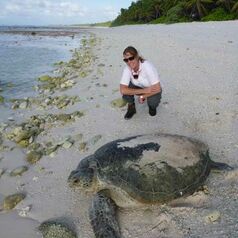
Nicole Esteban
Associate Professor of Marine Biology, Swansea University
Nicole is a marine ecologist with a focus on tropical coastal ecosystems and 20 years’ experience of working in integrated coastal zone management with NGOs, public and private agencies in the UK, Caribbean, Red Sea and Indian Ocean. She gained practical conservation management experience as a Manager of a Caribbean National Marine Park for eight years whilst producing and coordinating Management Plans, Biodiversity Action Plans and Environmental Impact Assessments,
Based at Swansea University, Nicole's research interests lie in improving our understanding of spatial and habitat use by marine fauna, with a focus on sea turtles and fish. Current research projects include increasing our understanding of movement of sea turtles in the Western Indian Ocean, impacts of marine debris on sea turtles and tracking salmonid fish movements using acoustics in the Bristol Channel. Nicole teaches modules on tropical marine ecology and conservation and skills to assess marine biodiversity via a range of tools and applications.
Nicole is a Fellow of the Higher Education Academy, a member of the IUCN Species Survival Commission Marine Turtle Specialist Group and has been appointed by DEFRA UK to the Western Indian Ocean sea turtle task force. She has an ongoing personal interest in co-management of natural resources, stakeholder engagement within conservation management and communication of conservation and research activities to the wider public.
Less ![]()
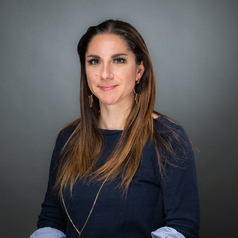
Nicole Granucci
Instructor of Physics, Quinnipiac University
Nicole Granucci received her B.S. in Physics from UCONN, a M.S. in Science Education from the University of New Haven and M.S. in Applied Physics-Optics at Southern Connecticut State University. She has taught both public and private high school physics and astronomy for over 10 years. She came to Quinnipiac as an Adjunct Professor of Physics in 2015 and became a full time Instructor of Physics in Fall 2019. She has worked on several astronomy research projects through NITARP (NASA/IPAC Teacher Achieve Research Program) where she has taken students to the American Astronomical Society (AAS) Meetings to present posters in astronomy research. She is continuously looking for new ways to engage students in authentic astronomy research and traveling to present their research.
She currently is the physics lab coordinator for Phy101L, PHY110L, and PHY111L. She teaches PHY101L Lecture during the semester and has taught PHY110 and PHY111 lecture as well. She interested in Physics Education and strives to produce an engaging environment for learning. She is introducing a new course called Physics of Music where it is an interdisciplinary study of the merging between understanding music and sound with the physics behind it. She will discuss the mathematics of sound, how instruments produce sound and how digital music is produced using physics. She plays string bass & trumpet in the Southern Connecticut University Band and plays electric bass & sings for a rock cover band. She has an extensive music background and likes to play piano and produce in her free time.
Less ![]()
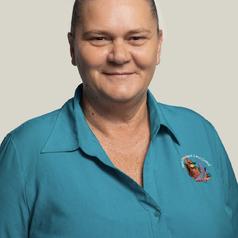
Nicole Huxley
Gudjala and Girramay leader, Indigenous Knowledge
Ms Nicole Huxley is a proud Gudjala woman with a strong connection to her cultural heritage. Ms Huxley is well known for her long history of fighting for recognition of First Nations people, particularly throughout North Queensland. Currently Nicole is on the North Queensland Land Council Board of Directors and also represents her traditional country of Charters Towers as a Director on their RNTBC. As Community Manager for Jumbun Ltd (current role) Ms Huxley is leading progress on community-determined priorities and bringing the community together through the Gumbudda in our Mala (GoiM) program, which was designed by community for community. GoiM is a truth-telling, healing and empowerment program that outlined the aspirations and goals of the community. Ms Huxley is a recognised and respected leader with strong skills to effectively engage and maximise participation with Queensland First Nations people.
Less ![]()
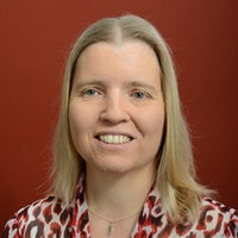
Nicole Koenig-Lewis
Professor of Marketing, Cardiff University
I am a Professor of Marketing at Cardiff Business School. My research addresses the theoretical debates, drivers and barriers surrounding sustainable behaviours relating to domestic consumption, access-based consumption, and festival/event attendance with a focus on events/ festivals as agents of sustainable behaviour change. I am a Senior Fellow of the Higher Education Academy (SFHEA) and an Affiliate of CAST (Centre for Climate Change and Social Transformations).
Less ![]()
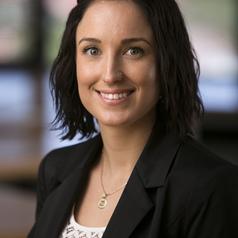
Nicole Lovato
Associate Professor, Adelaide Institute for Sleep Health, Flinders University
Associate Professor Lovato is a Senior Practitioner Research Fellow and Psychologist (provisional) at the Adelaide Institute for Sleep Health, Flinders University. She has extensive experience in insomnia and circadian physiology. Her research is particularly focused on the development of new, innovative therapeutic interventions and models of care for the management of chronic insomnia and circadian rhythm sleep disorders and associated chronic mental and physical ill-health. She works closely with consumers, primary care, and other key stakeholders to translate this knowledge to make best-practice sleep healthcare accessible and cost-effective for the community.
She is co-Chair of the Chronobiology Council of the Australasian Sleep Association (ASA), Australia’s peak advocacy body representing clinicians, scientists, and researchers in sleep medicine. A/Prof Lovato’s professional leadership has shaped practice change with the inclusion of chronobiology in education modules and guidelines for the management of chronic insomnia. She is co-inventor and holds patents for a sleep disorders diagnostic tool.
Less ![]()

Nicole Lynch
Clinical Nurse Specialist and Visiting Professor of Nursing, Purdue University
Nicole Lynch, DNP, MSN, CNS/APN, RNC-OB, CNE, serves as a Visiting Professor at Purdue Global. Holding certifications as a Clinical Specialist and Nurse Educator, Lynch's impactful contributions span clinical practice, nursing education, publication, and curriculum development. With over two decades in Maternal Child Nursing and certification in Inpatient Obstetrics, she brings extensive experience to her endeavors. Lynch's authority extends to her authorship of articles and presentations on pregnancy, parenthood, and nursing leadership. Her commitment further shines through volunteering for the Postpartum Depression Alliance of Illinois. On a personal level, Lynch confronted her own Postpartum Depression and Anxiety following the birth of her children 17 and 19 years ago. Through outpatient treatment, she witnessed the profound effects of this mental health condition firsthand.
Less ![]()

Nicole MacKenzie
PhD Candidate in Clinical Psychology, Dalhousie University
Nicole MacKenzie is a PhD candidate in Clinical Psychology at Dalhousie University. She is also a scholar in Dalhousie's OpenThink training initiative. Her research is focused on knowledge mobilization and implementation science within the field of pediatric pain. Her current research is interested in how different health care partners (e.g., health professionals, researchers, patient/caregivers) work collaboratively to put evidence into action within children's pain.
Less ![]()
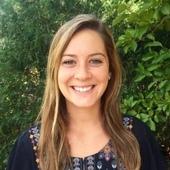
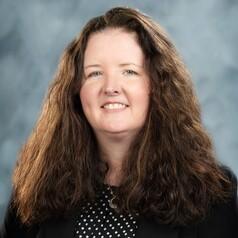
Nicole Miller
Associate Professor of Elementary and Middle School Education, Mississippi State University
Nicole C. Miller is an associate professor of elementary and middle level education in the Department of Teacher Education and Leadership at Mississippi State University. She engages in research and service activities focused on teacher preparation, middle level education, rural education, technology integration, and teaching with primary sources.
Miller holds a Doctor of Philosophy in Curriculum and Instruction from Mississippi State University. She holds a Master of Arts in Education degree with a concentration in instructional technology from California State University, Northridge. She earned a Bachelor of Arts degree in Political Science from the University of California, Los Angeles.
Less ![]()
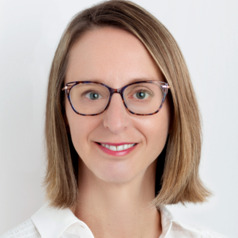
Nicole O'Byrne
Associate Professor, Faculty of Law, University of New Brunswick
Ph.D. Law and Society (UVic), LL.M. (McGill), LL.B. (Saskatchewan), B.A. (Hons) (Regina), B.Sc. (Queen’s)
Less ![]()

Nicole Pankiewicz
Assistant Professor of Political Science, College of Coastal Georgia
I have been an Assistant Professor of Political Science at the College of Coastal Georgia since 2020. I have a PhD in Government from the University of Virginia (2017), a master's degree in Mass Communication, and an MLIS. Before coming to Coastal Georgia I was at the University of Utah, and before that I spent two and a half years as a Visiting Assistant Professor at Miami University of Ohio.
My current interest in political science is the U.S. space program; I've taught a course on the space program at Miami University and at Coastal Georgia. I am working on an article about the importance of teaching the space program to college and university students, who know little about its politics and history. I advocate for the space program as an excellent focus for a political science course, no matter what subfield is being taught.
This semester (Spring 2023) I'm teaching a course on politics and science fiction in addition to teaching an introductory-level American Government course.
My dissertation research explored Americans' understanding of citizenship and what it takes to be considered a "good" citizen (the top answers in my survey research were obeying the law, paying taxes, and contributing to society).
Less ![]()
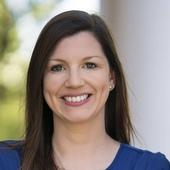
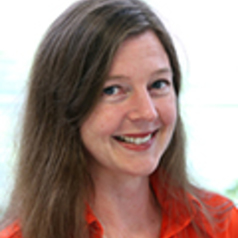
Nicole Porter
Dr Porter's interests, qualifications and experience span a range of built environment disciplines including landscape architecture, urban design and architecture. Following training at the University of Melbourne (PhD, M.Arch, Grad Cert L.Arch, BPD) Nicole taught landscape theory within the landscape program at Melbourne. In 2008 Nicole was appointed as lecturer in Landscape Architecture at the University of Canberra, where she taught a number of design studios, with projects ranging from individual residential gardens through to urban interventions / installations, critical urban design scenarios and the design and management of National Park landscapes.
Her current role at the University of Nottingham includes architecture studio teaching and research with a strong landscape and place making focus, as well as renewable energy and GI provision in heritage landscapes. Nicole has practiced as an urban designer with the Australian Capital Territory, Canberra, where she engaged in master planning work and strategic policy research. Nicole led the production of the PIA award winning Molonglo Valley Place making guide (2010). She is an academic member of the Landscape Institute.
Less ![]()

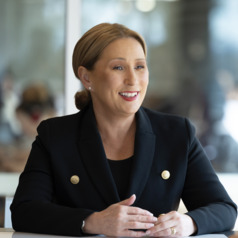
Nicole Rinehart
Professor, Child and Adolescent Psychology, Director, Krongold Clinic (Research), Monash University
Nicole Rinehart is Professor of Child and Adolescent Psychology and Director of the Krongold Clinic (Research)
Less ![]()

Nicole Ryan
Associate Lecturer of Criminology, La Trobe University
Dr Nicole Ryan is a criminologist in the Law School at La Trobe University. She has almost a decade of experience in conducting criminological research and teaching in higher education. Doctor Ryan’s research sits at the interface between several disciplines including, criminology and criminal justice, sociology, critical social policy, rural criminology, social ecology studies, and race, culture and gender studies.
Besides her interest in Indigenous justice issues and reincarceration, Nicole is currently working on two streams of research. First, she is exploring prison visitation in Australia and the impact that visitation has on the visitor, and second, she is examining the relationship between prison through-care programs and reincarceration.
Dr Ryan has conducted evaluations of community justice programs and specialised court programs, and empirical research on the risk factors of reincarceration, youth justice conferencing, raising the age of criminal culpability, and public attitudes on sentencing, rehabilitation and reintegration practices. She currently serves as an expert advisor to New South Wales Corrective Services Children and Families of Offenders Steering Committee (CFOSC).
Less ![]()
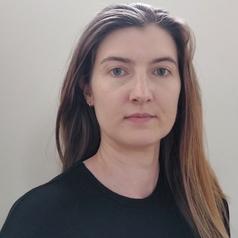
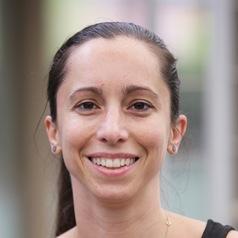
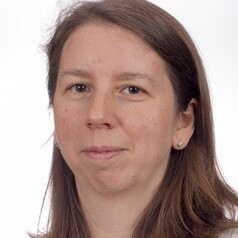
Nicole Wernert
Senior Research Fellow, Australian Council for Educational Research
Nicole Wernert is a Senior Research Fellow at the Australian Council for Educational Research.
Nicole Wernert is the National Research Coordinator for Australia for the IEA's Trends in International Mathematics and Science Study (TIMSS), an international large-scale assessment of mathematics and science at Year 4 and Year 8.
Less ![]()
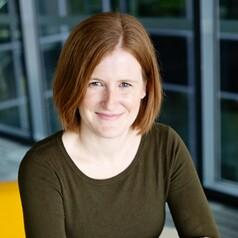
Nicole White
Senior Research Fellow - Statistics, Queensland University of Technology
Dr Nicole White is a statistician working in health and medical research. She has worked extensively with academics, clinicians and healthcare decision makers to improve our health and the healthcare we receive. Her independent research focusses on improving research quality by bridging the gap between statistical and clinical expertise.
Nicole has a PhD in Statistics and Bachelor of Mathematics (Honours) from the Queensland University of Technology. She is a 2021-2022 Science and Technology Superstar of STEM and Program Lead (Infectious disease) at the Australian Centre for Health Services Innovation.
Less ![]()
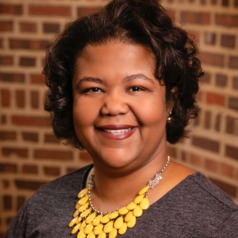
Nicole A. Cooke
Baker Endowed Chair and Professor of Library and Information Science, University of South Carolina
Nicole A. Cooke is the Augusta Baker Endowed Chair and a Professor at the School of Library and Information Science, at the University of South Carolina. Cooke is a 2012 graduate from Rutgers University with a PhD in communication, information, and library studies, where she was one of the first 12 American Library Association Spectrum Doctoral Fellows. She holds the MLS degree from Rutgers University, and a M.Ed. in Adult Education from Pennsylvania State University. Previously, Dr. Cooke was a tenured professor at the University of Illinois at Urbana-Champaign.
Cooke is professionally active in ALA, ACRL, the Association of Library and Information Science Educators (ALISE), and several other professional library organizations. Cooke was awarded the 2017 ALA Achievement in Library Diversity Research Award, presented by the Office for Diversity and Literacy Outreach Services, and the 2016 ALA Equality Award. She has also been honored as the University of Illinois YWCA’s 2015 Leadership Award in Education winner in recognition of her work in social justice and higher education, and she was selected as the University’s 2016 Larine Y. Cowan Make a Difference Award for Teaching and Mentoring in Diversity. She was the 2013 Recipient of the Norman Horrocks Leadership Award given by ALISE, and Library Journal named her a Mover & Shaker in 2007.
Cooke’s research and teaching interests include human information behavior (particularly in the online context), critical cultural information studies, and diversity and social justice in librarianship (with an emphasis on infusing them into LIS education and pedagogy).
She has published articles in journals including JASIST, The Library Quarterly, InterActions: UCLA Journal of Education and Information, Polymath: An Interdisciplinary Arts and Sciences Journal, Library and Information Science Research, Information Research, and New Review of Academic Librarianship. Cooke coauthored Instructional Strategies and Techniques for Information Professionals (Chandos Press, 2012), co-edited Teaching for Justice: Implementing Social Justice in the LIS Classroom (Library Juice Press, 2017), and her latest books are Information Services to Diverse Populations: Developing Culturally Competent Library Professionals (Libraries Unlimited / ABC-CLIO, 2016), and Fake News and Alternative Facts: Information Literacy in a Post-Truth Era (ALA Editions. 2018).
Less ![]()
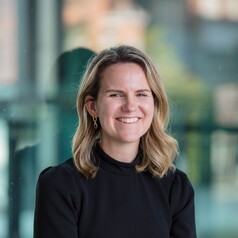
Nicole Emma Andrews
Research Fellow, The University of Queensland
Dr Nicole Andrews is an internationally recognised scholar in the field of pain management and an experienced clinician. Dr Andrews currently works as a postdoctoral research fellow at the RECOVER Injury Research Centre, The University of Queensland and as a clinical Occupational Therapist at the Tess Cramond Pain and Research Centre. Dr Andrews' PhD focused on overactivity in the context of chronic pain (i.e. activity engagement that severely aggravates pain). Her research has increased our understanding of the relationship between pain, activity and daily function in a chronic pain populations and led the development of an innovative award winning mobile health platform called Pain ROADMAP. Dr Andrews' research continues to focus on the development, use and evaluation of innovative and cutting edge technology solutions to improve the management of a variety of heath conditions including acute and persistent pain following Trauma.
Less ![]()
- Market Data























